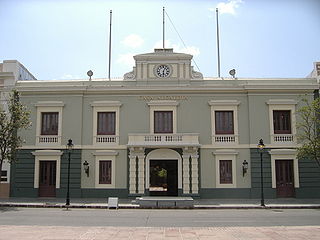
A municipality is usually a single administrative division having corporate status and powers of self-government or jurisdiction as granted by national and regional laws to which it is subordinate.
A county is a geographic region of a country used for administrative or other purposes in some nations. The term is derived from the Old French comté denoting a jurisdiction under the sovereignty of a count (earl) or a viscount. Literal equivalents in other languages, derived from the equivalent of "count", are now seldom used officially, including comté, contea, contado, comtat, condado, Grafschaft, graafschap, and zhupa in Slavic languages; terms equivalent to 'commune' or 'community' are now often instead used.

Local government is a generic term for the lowest tiers of governance or public administration within a particular sovereign state.
A unitary authority is a local authority responsible for all local government functions within its area or performing additional functions that elsewhere are usually performed by a higher level of sub-national government or the national government.
In many countries, a mayor is the highest-ranking official in a municipal government such as that of a city or a town. Worldwide, there is a wide variance in local laws and customs regarding the powers and responsibilities of a mayor as well as the means by which a mayor is elected or otherwise mandated. Depending on the system chosen, a mayor may be the chief executive officer of the municipal government, may simply chair a multi-member governing body with little or no independent power, or may play a solely ceremonial role. A mayor's duties and responsibilities may be to appoint and oversee municipal managers and employees, provide basic governmental services to constituents, and execute the laws and ordinances passed by a municipal governing body. Options for selection of a mayor include direct election by the public, or selection by an elected governing council or board.

A district is a type of administrative division that in some countries is managed by the local government. Across the world, areas known as "districts" vary greatly in size, spanning regions or counties, several municipalities, subdivisions of municipalities, school district, or political district.
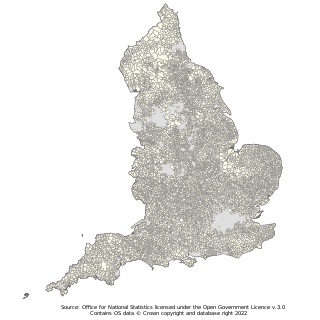
A parish council is a civil local authority found in England, which is the lowest tier of local government. They are elected corporate bodies, with variable tax raising powers, and they carry out beneficial public activities in geographical areas known as civil parishes. There are about 10,480 parish and town councils in England. Parish councils may be known by different styles, they may resolve to call themselves a town council, village council, community council, neighbourhood council, or if the parish has city status, it may call itself a city council. However their powers and duties are the same whatever name they carry.
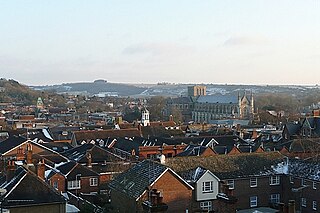
Winchester, or the City of Winchester, is a local government district with city status in Hampshire, England.
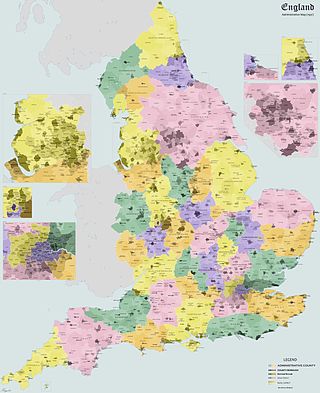
A municipal borough was a type of local government district which existed in England and Wales between 1836 and 1974, in Northern Ireland from 1840 to 1973 and in the Republic of Ireland from 1840 to 2002. Broadly similar structures existed in Scotland from 1833 to 1975 with the reform of royal burghs and creation of police burghs.

Most U.S. states and territories have at least two tiers of local government: counties and municipalities. Louisiana uses the term parish and Alaska uses the term borough for what the U.S. Census Bureau terms county equivalents in those states. Civil townships or towns are used as subdivisions of a county in 20 states, mostly in the Northeast and Midwest.
The Optional Municipal Charter Law or Faulkner Act provides New Jersey municipalities with a variety of models of local government. This legislation is called the Faulkner Act in honor of the late Bayard H. Faulkner, former mayor of Montclair, New Jersey and chairman of the Commission on Municipal Government.
A municipal council is the legislative body of a municipality or local government area. Depending on the location and classification of the municipality it may be known as a city council, town council, town board, community council, rural council, village council, or board of aldermen.
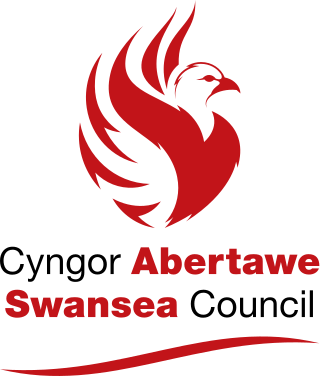
The City and County of Swansea Council, or simply Swansea Council, is the local authority for the city and county of Swansea, one of the principal areas of Wales. The principal area also includes rural areas to the north of the built-up area of Swansea and the Gower Peninsula to the west. The council consists of 75 councillors representing 32 electoral wards.

The Province of Quebec is divided into entities that deliver local government, along with other types of functional divisions.
Local government in New Jersey is composed of counties and municipalities. Local jurisdictions in New Jersey differ from those in some other states because every square foot of the state is part of exactly one municipality; each of the 564 municipalities is in exactly one county; and each of the 21 counties has more than one municipality. New Jersey has no independent cities, or consolidated city-counties.
Local government in Pennsylvania is government below the state level in Pennsylvania. There are six types of local governments listed in the Pennsylvania Constitution: county, township, borough, town, city, and school district. All of Pennsylvania is included in one of the state's 67 counties, which are in total subdivided into 2,560 municipalities. There are currently no independent cities or unincorporated territories within Pennsylvania. There is only one incorporated town in Pennsylvania, Bloomsburg.

Local government in the Australian state of Victoria consists of 79 local government areas (LGAs). Also referred to as municipalities, Victorian LGAs are classified as cities (34), shires (38), rural cities (6) and boroughs (1). In general, an urban or suburban LGA is called a city and is governed by a City Council, while a rural LGA covering a larger rural area is usually called a shire and is governed by a Shire Council. Local councils have the same administrative functions and similar political structures, regardless of their classification.
A clerk is a senior official of many municipal governments in the English-speaking world. In some communities, including most in the United States, the position is elected, but in many others, the clerk is appointed to their post. In the UK, a town or parish clerk is appointed by the town or parish council members. In almost all cases, the actual title of the clerk reflects the type of municipality they work for; thus, instead of simply being known as the clerk, the position is generally referred to as the town clerk, township clerk, city clerk, village clerk, borough clerk, board secretary, or county clerk. Other titles also exist, such as recorder and corporate officer. The office has existed for centuries, though in some places it is now being merged with other positions.
Local bodies in Tamil Nadu constitute the three tier administration set-up in the South Indian state of Tamil Nadu. It is a system of local government which forms the last level from the Centre. Chennai Corporation in the then Madras Presidency, established in 1688, is the oldest such local body not only in India but also in any commonwealth nations outside United Kingdom.

There are 8 divisions and 64 districts in Bangladesh, each district further subdivided into upazila. The area within each subdistrict, except for those in metropolitan areas, is divided into several unions, with each union consisting of multiple villages. Direct elections are held for each union, electing a chairperson and a number of members. In 1997, a parliamentary act was passed to reserve three seats in every union for female candidates. Following elections in the 2014–16 period, 25.2% of councillors were women, up from 23.4% in the 2011–13 period.










